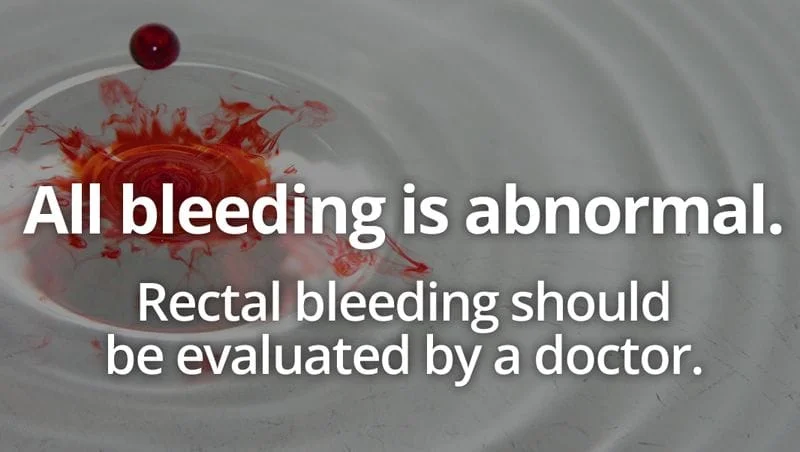Rectal Bleeding – When should I see a Doctor in Plano TX?
Seeing blood in the toilet or on toilet paper can be an alarming experience for anyone. This is not a normal occurrence. It may not be an indicator of a serious illness but that being said, it is STRONGLY recommended that anytime you experience rectal bleeding you have it evaluated by a physician . It is important to note that when issues are detected in their early stages prevention of serious damage is possible. For example, with colonoscopy we can remove precancerous polyps from your colon and prevent them from developing into cancer. The key is not to wait and think that something common like hemorrhoids are causing the bleeding and will go away over time with no long term effects.
Causes of Rectal Bleeding
Blood in your stool means that there is bleeding somewhere in your digestive tract. The most common causes of rectal bleeding are:
- Hemorrhoids
- Anal fissure
- Colon polyps
- Colon cancer
- Diverticulosis
- Ulcerative colitis
- Crohn’s Disease
- In addition, bleeding from higher in the digestive tract such as the stomach or small bowel can produce black tarry bowel movements, which is very serious as well, and needs to be evaluated.

What Exams are done to Evaluate Rectal Bleeding?
Rectal bleeding is not a normal event and requires an evaluation from a physician. While it is typically caused from benign conditions like hemorrhoids, that can only be determined for sure through an examination. This examination could include some tests to determine the cause of the rectal bleeding. The type of exam used will depend on several factors like your age, symptoms, family history and your medical history. The three most common tests used by Dr. Malik are:
- Rectal examination - this is the easiest test to perform and is done in the office and sometimes can detect the cause of bleeding with no further examination
- Anoscopy – this can be done at the same time as your office visit with no prep and minimal discomfort. It involves inserting a small speculum to inspect the anus and lower rectum in the office. It is a quick procedure which requires no sedation and is very good to evaluate hemorrhoids
- Colonoscopy – This procedure allows your doctor to examine the entire colon for any potential causes of rectal bleeding.